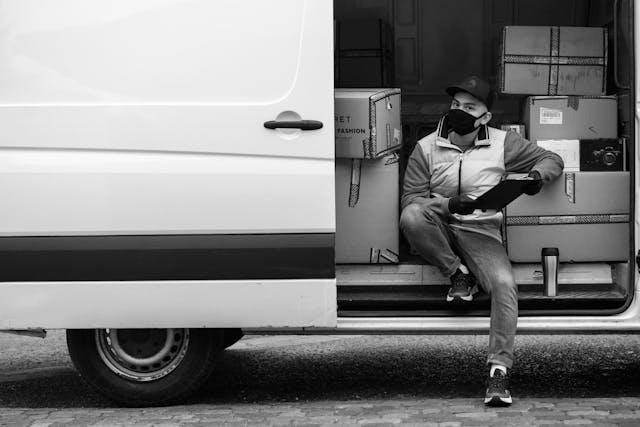Ireland’s small and medium-sized enterprises (SMEs) are the backbone of the economy, accounting for over 99% of active businesses in the country. With rising fuel costs, growing pressure to cut carbon emissions, and increasingly competitive delivery expectations, Irish businesses are under constant strain to do more with less. This is especially true for companies that operate vehicle fleets—whether it’s local delivery firms in Dublin, agricultural services in Galway, or construction contractors in Cork. To remain competitive in 2025 and beyond, Irish SMEs must leverage technology that gives them a clearer view of their operations. One of the most cost-effective and impactful tools available is the GPS vehicle tracker.
GPS vehicle tracker systems allow business owners and fleet managers to access real-time data on the location, performance, and efficiency of every vehicle under their control. In Ireland’s dense urban centres and remote rural roads, knowing where your assets are at all times is a game-changer. The technology allows dispatchers to dynamically reroute drivers based on traffic conditions, verify job completion times, and provide accurate ETAs to customers. For service-based businesses, this visibility enhances trust and accountability—two pillars of long-term customer retention.
One of the best uses of GPS vehicle trackers is fuel efficiency monitoring. Rising diesel prices across Ireland have pushed operating costs higher, and inefficient driving habits like idling, speeding, or unnecessary detours can quickly add up. GPS systems can track fuel usage and driver behaviour, alerting managers when thresholds are exceeded. In addition to cost control, this data can be used to coach drivers and implement performance-based incentives. By reducing fuel consumption, businesses also lower their carbon footprint—an increasingly important consideration for Irish firms responding to ESG expectations and government climate goals.
Theft prevention is another vital use case for GPS tracking in Ireland. Commercial vans carrying valuable tools or goods are a frequent target for theft, particularly in larger cities and industrial estates. GPS trackers offer instant alerts if a vehicle moves outside of designated working hours or from a geofenced location. This level of security enables swift response and often assists Gardaí in recovering stolen vehicles or cargo. For insurance purposes, having GPS tracking can also lead to reduced premiums, particularly with fleet coverage providers that prioritize risk reduction strategies.
In logistics-heavy sectors such as courier services, wholesale distribution, and construction supply, GPS trackers offer a clear route to operational optimization. Managers can identify bottlenecks in their delivery process, compare driver routes, and establish best practices that reduce delivery times. With the continued growth of e-commerce in Ireland, timely delivery is no longer a luxury—it’s a baseline expectation. GPS tracking provides the transparency and performance data needed to meet these expectations consistently.
For companies offering field services—such as plumbers, electricians, pest control, or telecom technicians—GPS tracking ensures accurate scheduling and route planning. Instead of relying on rough estimates or paperwork-based job sheets, managers can verify start and stop times, detect overbooking issues, and reallocate nearby workers to urgent requests. In Ireland’s competitive service economy, efficiency translates directly into increased daily job completions and improved margins.
To implement GPS tracking effectively, Irish businesses should choose a system that integrates with their existing fleet management software and is compliant with local data protection laws, including GDPR. Privacy concerns among employees should be addressed proactively with clear communication about what data is collected, how it’s used, and how it benefits the entire operation.
In conclusion, the best use of GPS vehicle trackers in Ireland is not just about location monitoring—it’s about empowering smarter decisions across every level of business operations. From controlling fuel costs and reducing theft to improving service delivery and meeting sustainability goals, the technology provides an essential edge. As Ireland continues to innovate and adapt in a dynamic global market, embracing GPS fleet tracking is a practical step toward future-proofing any business that relies on vehicles.

































